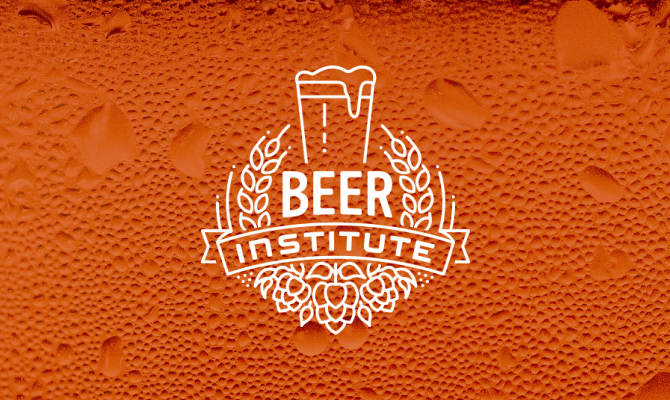
Beer consumption by Americans did not increase during the COVID-19 pandemic, according to research by Echelon Insights on behalf of the Beer Institute (BI), a national trade association.
Echelon surveyed registered voters 21+ nationally from March 1-4, 2021, and found that 60% of respondents reported that their consumption of alcohol — including wine, beer, and liquor or hard spirits — did not change since the start of the pandemic. Nearly one-in-five respondents reported drinking less, while one-in-five reported drinking more.
“Many people think that over the course of the pandemic, people have been sitting at home drinking more beer than ever before, and that’s simply not the case,” Jim McGreevy, president and CEO of the BI, said in a release. “Although many news reports erroneously stated that beer consumption has increased during quarantine, the perception that people are drinking more is false.”
“Even though many Americans may think the pandemic caused an uptick in alcohol consumption, when asked about their own behavior, they don’t think their own habits have changed much, either in terms of the quantity or the frequency with which they choose to drink,” Kristen Soltis Anderson, president and co-founder of Echelon, added. “The disconnect between people’s own actions and what they think others have done during the pandemic is striking.”
The survey is in line with similar studies taken in early 2020 by Indiana University–Purdue University Indianapolis (IUPUI) and YouGov, which both found that any increase in drinking reported by respondents was offset by others reporting drinking less while stuck at home.
Lester Jones, chief economist for the National Beer Wholesalers Association (NBWA), has long noted that consumers drink the same amount of alcohol annually, including in 2020. That number has been “predictable and stable over time,” hovering around 2.5 gallons of ethanol per capita.
“If you read the general news … you’d think that everybody is drinking large amounts of alcohol, they’re having a great time, and we have an alcohol problem because of the pandemic. And the reality is quite different,,” Jones said during a year in review Fintech webinar from December 2020. “The beer industry is down, it’ll probably be down at the end of the year … and that means there’s less beer to be consumed this year than last year.”
Last year, nearly $20 billion of retail beer sales were lost as a result of the pandemic, according to this year’s “Beer Serves America” report commissioned by the BI and the NBWA. That report also found that around 568,000 U.S. jobs dependent on the beer industry were lost, the majority of which were in retail establishments such as bars and restaurants.
The Echelon survey reflects the impact of COVID-19-related shutdowns in the bar and restaurant industry, according to McGreevy, who emphasized the lost drinking occasions at stadiums, concert venues, and other on-premise establishments.
“Hard-working Americans who are employed by the hospitality sector — such as our community restaurants, neighborhood bars, and local breweries — have been disproportionately impacted by the pandemic,” McGreevy said. “The beer industry is integral to their livelihoods, and when it’s safe to do so, we look forward to welcoming Americans back to their favorite bars and restaurants to enjoy a beer in the company of friends and family.”
